Saudi Arabia and UAE use French weapons in Yemen, report reveals
French weapons are being used by the United Arab Emirates and Saudi Arabia in Yemen, according to a classified note revealed by French media on Monday, April 15 which contradicts the claims of France’s government.
The note from the French military intelligence service, published by new investigative media outlet Disclose, concluded that the UAE and Saudi Arabia deployed a range of French weaponry from artillery to ships in their war against Houthi rebels.
Disclose is a new investigative website working in partnership with established media companies including public broadcaster France Info, online brand Mediapart and Franco-German television channel Arte.
Under pressure from rights groups in France over the sales, the French government has always insisted that French arms are only used in defensive circumstances to deter attacks by the Houthis.
France, the third-biggest arms exporter in the world, counts Saudi Arabia and the UAE as loyal clients in the Middle East, its biggest regional market in 2017.
Those two countries intervened in 2015 to support the Yemeni government against Houthi rebels, which are backed by Iran, in a war that has left around 10,000 people dead and pushed millions to the brink of starvation.
The United Nations calls the situation in Yemen the world’s worst humanitarian crisis.
Artillery, tanks, ships, helicopters
The classified note – provided to the French government in October 2018, according to Disclose – said that 48 Caesar self-propelled 155mm howitzers manufactured by the Nexter group were being used along the Saudi-Yemen border.
According to Nexter, the Caesar system “is in service in a Middle Eastern country” that the company does not disclose. In July 2006, the Saudi Arabian National Guard placed an order for 80 systems, according to the tracking website Army-Technology.
Amnesty International reported in 2016 that France transferred four Caesar 155mm self-propelled guns to Saudi Arabia in 2015.
Leclerc tanks, sold in the 1990s to the UAE, have also been used, as have Mirage 2000-9 fighter jets, while French missile-guiding technology called Damocles might have been deployed, according to the assessment.
Disclose said it had identified on satellite images the presence of Leclerc tanks, on November 11, 2018, close to habitations located about 5 km (about three miles) from the key Red Sea port city of Hodeidah.
Cougar transport helicopters and the A330 MRTT refueling plane have also seen action, deployed over Yemen from military bases Khamis Mushait and Jizan in Saudi Arabia, and two French-made ships are serving in the blockade of Yemeni ports which has led to food and medical shortages, the DRM military intelligence agency concluded.
The ships were identified as the Saudi Royal Navy’s Al-Riyadh-class frigate Makkah – manufactured by Armaris, a former joint venture of DCN (now Naval Group) and Thales – and a Baynunah-class corvette owned by the UAE Navy. The Baynunah-class corvettes were designed by Abu Dhabi Ship Building and the French shipyard Constructions Mécaniques de Normandie.
Asked for comment by AFP, the French government said that “to our knowledge, the French weapons owned by members of the coalition are for the most part in defensive positions, outside of Yemen or in military bases, not on the frontline.”
Other countries have suspended weapons sales to Saudi Arabia over humanitarian concerns stemming from the Yemen conflict. Last month Germany extended an embargo on weapons exports to Saudi Arabia by six months, and called on France and the United Kingdom to ensure that weapons delivered to Saudi Arabia or the UAE would not be deployed in Yemen.
On November 22, Finland said it would not allow new arms export authorizations to Saudi Arabia or the United Arab Emirates over the situation in Yemen, following a decision by Denmark’s foreign minister to suspend exports of military equipment to Saudi Arabia due to concerns over the Yemen war and murder of the journalist Jamal Khashoggi.
Earlier in November, Norway said it would freeze all defense material export licenses to Saudi Arabia, including those for dual-use items.
But some other countries have stuck by the kingdom rather than use lucrative arms deals. In September, Spain said it will go ahead with the delivery of 400 laser-guided bombs to Saudi Arabia, after earlier saying it would block the sale. The u-turn came amid concerns that cancellation of the deal could have jeopardized a €1.8 billion ($2.04 billion) order of five Corvette warships.
UN identifies suspected Iranian anti-tank guided missiles in Yemen
With reporting from AFP


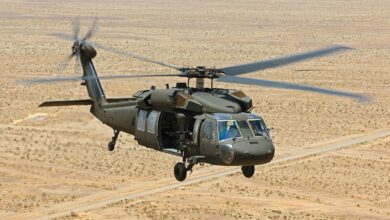

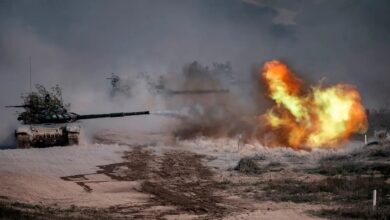
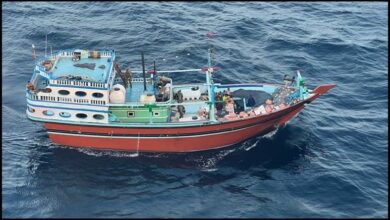
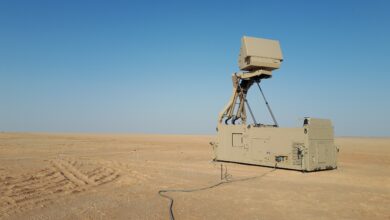
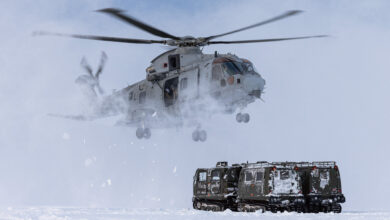

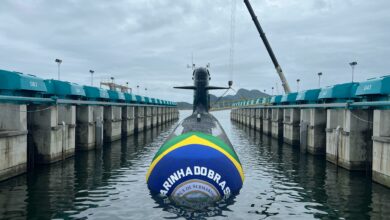

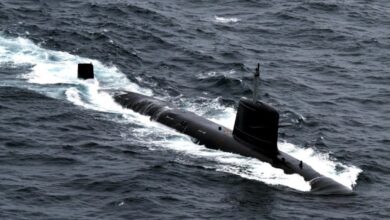
One Comment